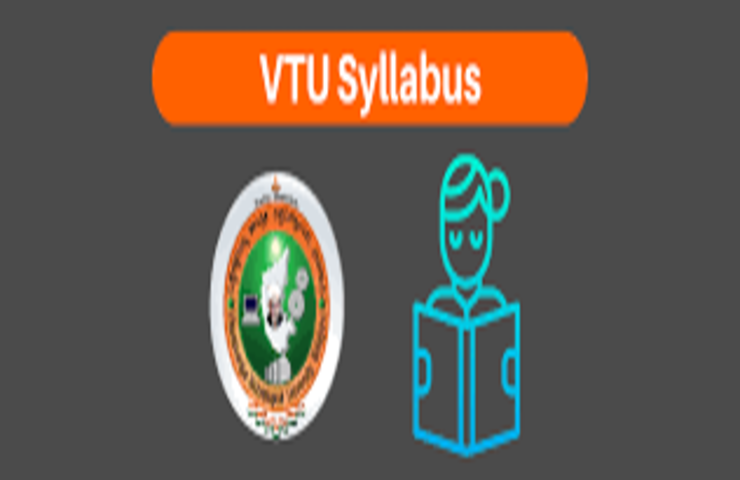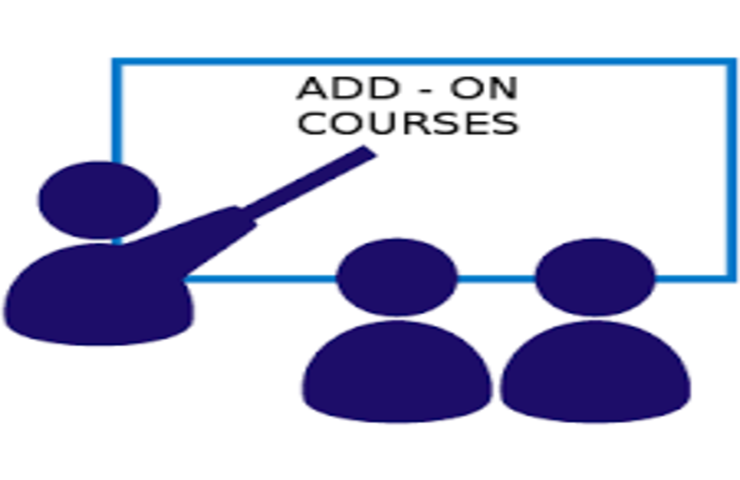
Department Virtual Tour
The Department of Electrical & Electronics Engineering was established in the year 2004 with an intake of 60. The department conducts four years Bachelor of Engineering in Electrical & Electronics Engineering degree course affiliated to Visvesvaraya Technological University, Belagavi. The department has well-qualified staff with expertise in Power Systems, Electronics and Computer Applications, assisted by skilled supporting staff. The department has present state of art laboratories to meet the requirements of University curriculum. The course content includes the basics of Electrical Engineering and a comprehensive treatment on Electrical Machines, Electrical Networks, Power Generation, Transmission and Distribution, Electrical Power Systems, Computer Application to Power System. The course also gives a considerable coverage to Analog & Digital Electronics, Power Electronics and Computer System and applications. The Department library has large volume of technical books, competitive exam books, project reports, Magazines to cater the need of the students. Electrical Staff and Student Association (ELECTRA)-a departmental association provides a platform for students to exhibit their talents in various extracurricular activities. The Department has Institution of Engineers (India) Student Chapter which conducts various technical activities like Expert Talks, Technical Visits, Workshops and Conferences etc. The students graduated from the department gets ample opportunities for securing good placements in Electrical Industries and Electronics and Computer fields.
Electrical and Electronics Engineering
Our Vision
To foster the technical skills, research & innovation in the young minds and enabling them by reinforcing the contemporary needs with sustained societal development in the field of Electrical & Electronics Engineering.
Our Mission
M1. To imbibe innovative pedagogy to impart technical knowledge among the students in the field of Electrical and Electronics Engineering.
M2. To create a passion for learning, promote innovation and entrepreneurship.
M3. To develop strong collaboration with premier industries, Government Agencies and professional bodies.
M4. To instill moral and ethical values among stake holders.
Programme Educational Outcomes
PEO1: Able to emerge as outstanding technocrats with sound knowledge of applied science and Electrical & Electronics Engineering field.
PEO2: Able to pursue their professional career in public / private sector, research and becoming successful entrepreneurs.
PEO3: Able to demonstrate continuous learning process to solve social and environmental issues with moral ethics.
Program Specific Outcomes
PSO1: To identify, formulate and analyze problems associated with Electrical Power system, Electric machineries and Electronics Engineering.
PSO2: Able to use modern computation tools for Electrical Engineering practices.
Programme Outcomes
Engineering knowledge: Apply the knowledge of mathematics, science, engineering fundamentals, and an engineering specialization to the solution of complex engineering problems.
Problem analysis: Identity, formulate, review research literature, and analyze complex engineering problems reaching substantiated conclusions using the first principles of mathematics, natural sciences, and engineering sciences.
Design/development of solutions: Design solutions for complex engineering problems and design system components or processes that meet the specified needs with appropriate consideration for public health and safety and cultural, societal, and environmental considerations.
Conduct investigations of complex problems: Use research-based knowledge and research methods including design of experiments, analysis, interpretation of data, and synthesis of the information to provide valid conclusions.
Modern tool usage: Create, select, and apply appropriate techniques, resources, and modern engineering and IT tools including prediction and modeling to complex engineering achieves with an understanding of the limitations.
The engineer and society: Apply to reason informed by the contextual knowledge to assess societal, health, safety, legal and cultural issues and the consequent responsibilities relevant to the professional engineering practice.
Environment and sustainability: Understand the impact of professional engineering solutions in societal and environmental contexts and demonstrate the knowledge of and need for sustainable development.
Ethics: Apply ethical principles and commit to professional ethics and responsibilities and norms of the engineering practice.
Individual and team work: Function effectively as an individual and as a member or leader in diverse teams and in multidisciplinary settings.
Communication: Communicate effectively on complex engineering activities with the engineering community and with society at large, such as being able to comprehend and write effective reports and design documentation, make effective presentations and give and receive clear instructions.
Project management and finance: Demonstrate knowledge and understanding of the engineering and management principles and apply these to one’s own work, as a member and leader in a team, to manage projects and in multidisciplinary environments.
Life-long learning: Recognize the need for, and have the preparation and ability to engage in independent and life-long learning in the broadest context of technological change.
CO PO Statements
Department Calendar
Department Calendar
Time Table
IA TT & SYLLABUS
IA Time table & Syllabus Coverage

Mentor-Mentee List
Mentor-Mentee List
Highlights of the Department
Laboratories
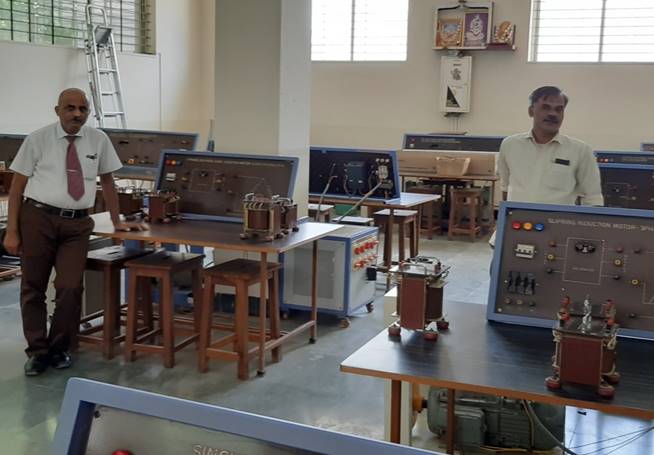
Electrical Machine Lab
Total Expenditure : Rs 16.95 Lakh
Area of Lab:136 Sq mt
Major Equipment:
Rectifier Unit ,Motor Generator Sets ( DC – DC ), Motor Generator Sets ( DC – AC ), Motor Generator Sets ( AC – DC ) , DC Motor with Loading arrangement, Induction Motors ( 1-F and 3-F ), Transformers (1-F, 1kVA and 2kVA ), Synchronizing Kit , Autotransformers ( 1F & 3F ), Measuring Meters and Loading Rheostats
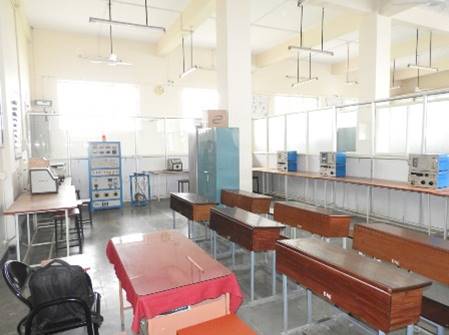
Relay & High Voltage Lab
Total Expenditure : Rs 8.23 Lakh
Area of Lab:105 Sq mt
Major Equipment:
- HV Test Kit ( 50kV AC / 70 kV DC )
- Oil Testing Kit
- Motor Protection Relay
- Electromechanical Over Voltage Relay Kit
- Electromechanical Over Current Relay Kit
- mP Based OV / UV Relay Kit
- Field Mapping Kit
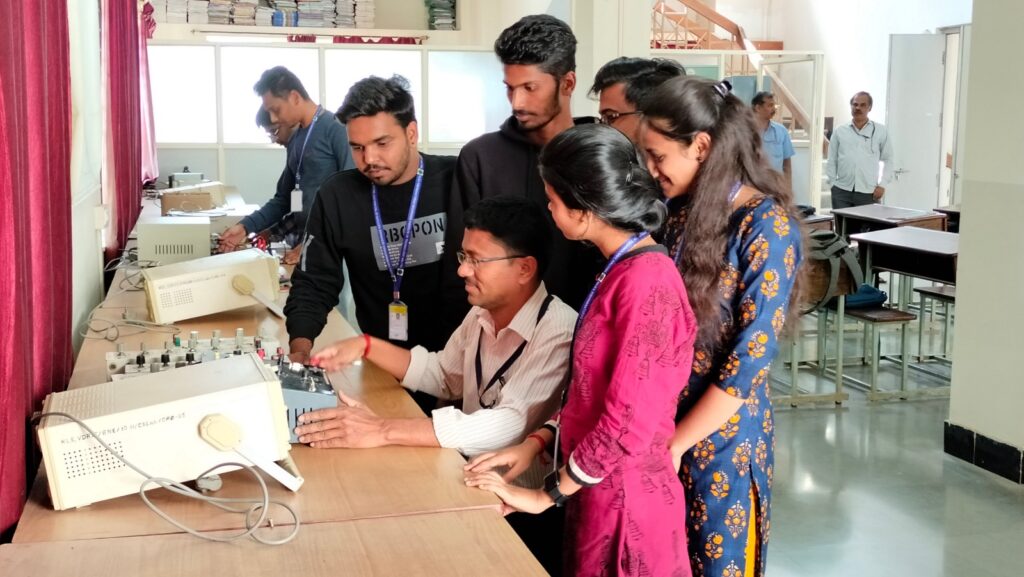
Control System Lab
Total Expenditure : Rs 3.17 Lakh
Area of Lab:148 Sq mt
Major Equipment:
- PD, PID, PI Controller Kits
- CRO’s & Function Generators
- DC and AC Servomotors
- Synchro pair Kits
- AC & DC Servo Motor Kits
- PC’s
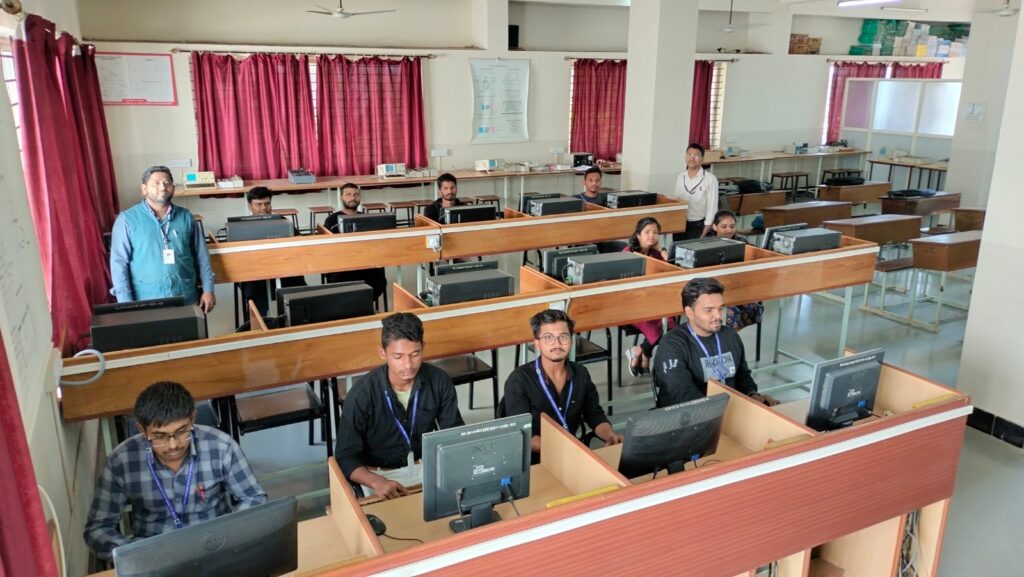
Microcontroller Lab
Total Expenditure: Rs 10.00 Lakh
Area of Lab: 148 Sq mt
Major Equipment:
- Microcontrollers Kits
- PC’s
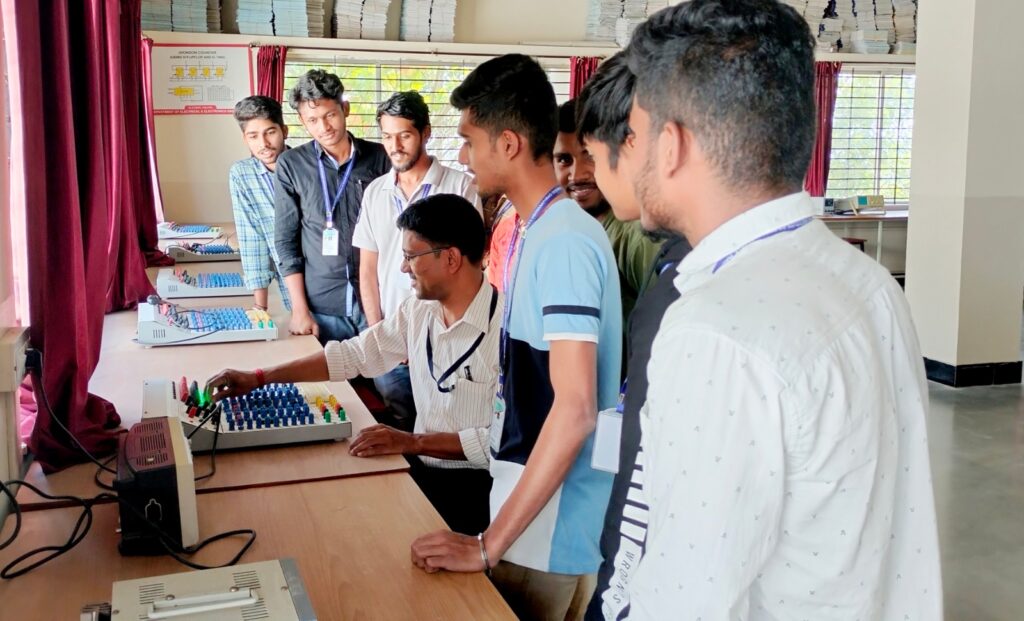
Digital System Design Lab
Total Expenditure : Rs 2.00 Lakh
Area of Lab:132 Sq mt
Major Equipment:
- Digital Trainer Kit
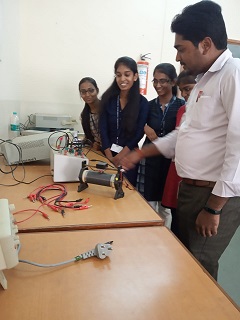
Power Electronics Lab
Total Expenditure : Rs 2.30 Lakh
Area of Lab:88 Sq mt
Major Equipment:
- Speed Control of Stepper Motor Kit
- Speed Control of DC Motor Kit
- SCR Turn On Circuit Using LC & Auxiliary Commutation
- UJT Firing Circuit for HWR & FWR Circuit
- Turn ON of Universal Motor using IGBT
- Related Kits for PE Experiments
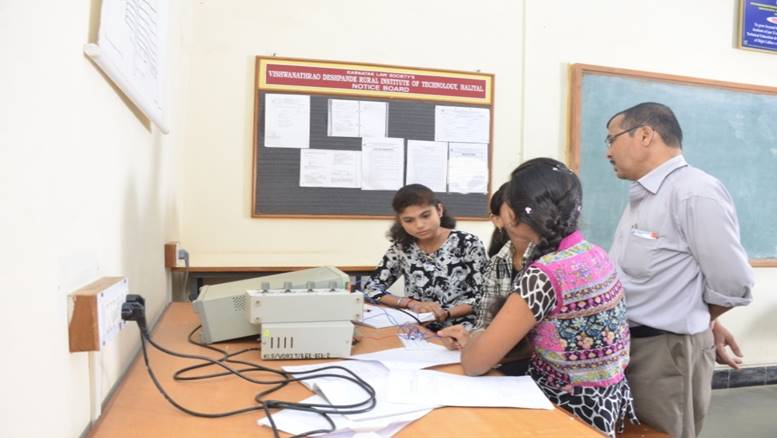
Analog Electronics Circuits & Op- Amp Lab
Total Expenditure : Rs 5..26 Lakh
Area of Lab:88 Sq mt
Major Equipment:
- Function Generators
- CRO’s
- Decade Resistances, Capacitance , Inductances
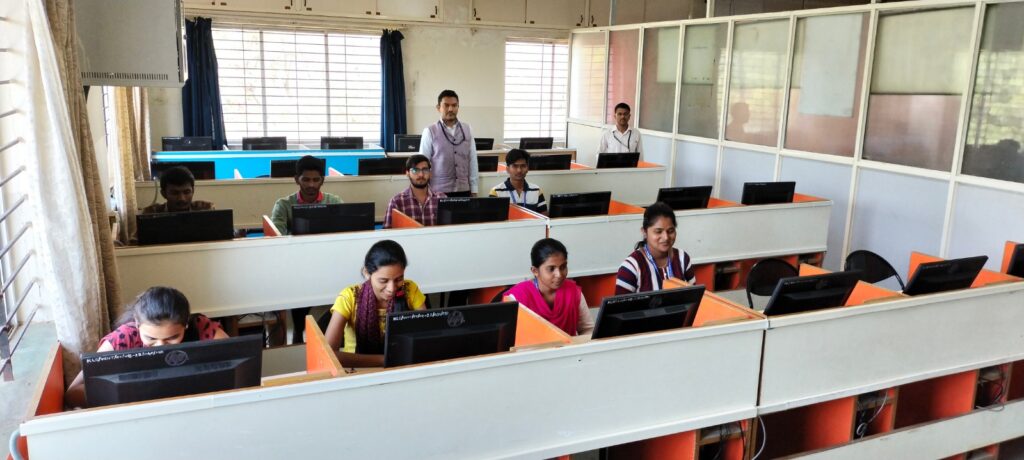
Digital Signal Processing Lab/Power System Simulation Lab/Circuit Lab Using PSPICE/SCI Lab for Electrical & Electronics Measurement
Total Expenditure : Rs 12.5Lakh
Area of Lab: 67 Sq mt
Major Equipment:
- PCS
- Software




